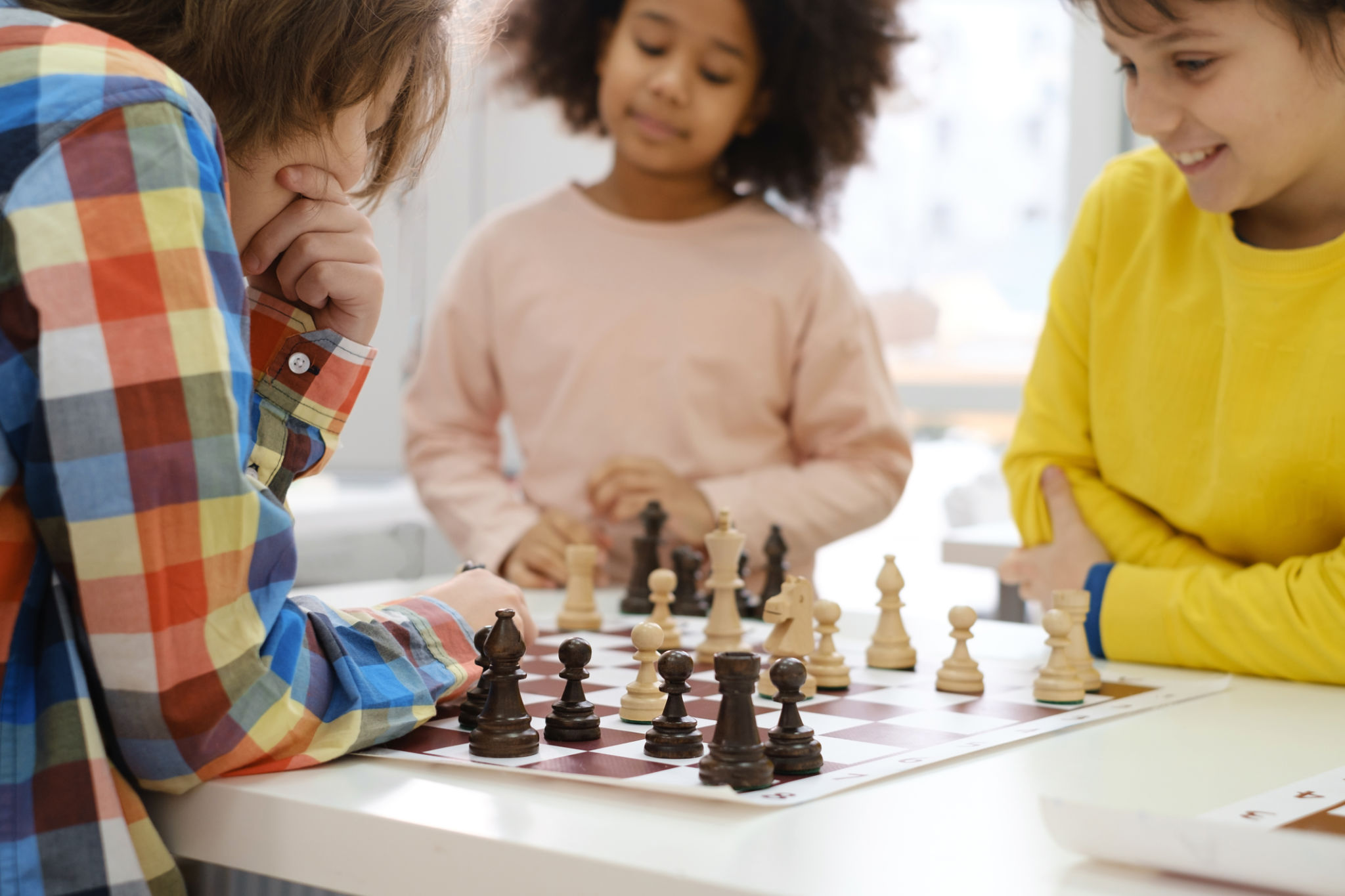The Benefits of Chess for Children: Developing Critical Skills Early
Introduction to Chess for Children
Chess is not just a game; it is a powerful educational tool that can play a significant role in a child's development. Introducing children to chess at an early age can have a profound impact on their cognitive abilities, critical thinking, and emotional growth. By engaging young minds in this strategic game, parents and educators can help foster skills that will benefit them for a lifetime.
Children who learn chess often find it both challenging and fun, making it a perfect blend of entertainment and education. The game encourages patience, focus, and strategic planning, all of which are crucial skills in various aspects of life.

Enhancing Problem-Solving Skills
One of the key benefits of chess for children is the enhancement of problem-solving skills. Chess requires players to think several moves ahead, anticipate their opponent's best moves, and adapt to changing circumstances on the board. This process encourages children to think critically and develop solutions to complex problems.
Through regular practice, children learn to assess situations from different angles and make decisions that balance short-term gains with long-term objectives. These skills are invaluable not only in academics but also in everyday decision-making.
Strategic Thinking and Planning
Chess is a game of strategy that requires players to plan and execute intricate sequences of moves. By playing chess, children learn the importance of strategic thinking and foresight. They become adept at setting goals, evaluating options, and understanding the consequences of their actions.

Improving Concentration and Focus
In today's fast-paced world, maintaining concentration can be challenging for children. Chess demands sustained attention and focus as players must remain engaged throughout the game to anticipate their opponent's best moves and respond effectively. This increased concentration can carry over into other areas of a child's life, such as schoolwork or extracurricular activities.
Moreover, chess teaches children patience as they wait for their turn and carefully analyze the board. This patience is crucial for developing self-discipline and the ability to concentrate on tasks without getting easily distracted.
Boosting Memory and Cognitive Abilities
Playing chess regularly can significantly enhance a child's memory and cognitive abilities. The game involves remembering various patterns, strategies, and moves, which helps improve memory retention. Research has shown that children who play chess have better memory skills compared to those who do not.

Fostering Emotional Growth
Chess is not just about intellectual growth; it also plays a vital role in fostering emotional development. The game teaches children how to handle both victories and losses gracefully. They learn the importance of resilience, perseverance, and sportsmanship.
By experiencing both wins and setbacks, children develop emotional intelligence and empathy. They learn to respect their opponents and acknowledge their strengths, which promotes healthy social interactions and teamwork.
Encouraging Creativity
Chess encourages creativity by allowing children to experiment with different strategies and approaches. As they explore the possibilities on the board, they learn to think outside the box and develop innovative solutions. This creative thinking extends beyond the chessboard, inspiring children to approach challenges with a fresh perspective.
In conclusion, introducing children to chess is an investment in their future. The skills they develop through this timeless game—problem-solving, strategic thinking, concentration, emotional resilience, and creativity—will serve them well throughout their lives. Encouraging children to play chess is not only about learning a game; it's about equipping them with essential tools for personal growth and success.